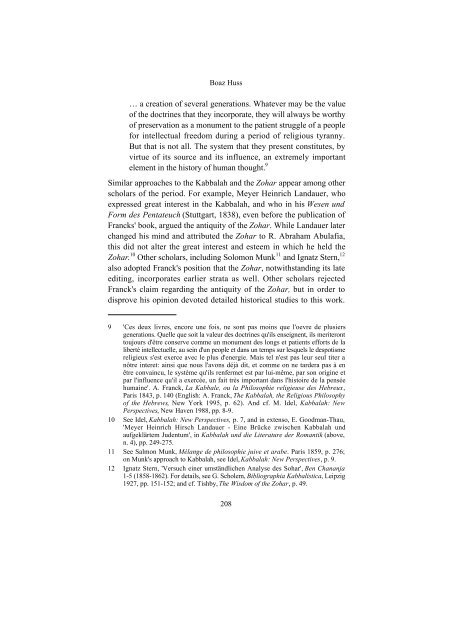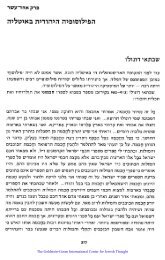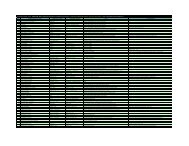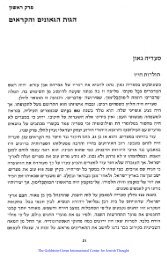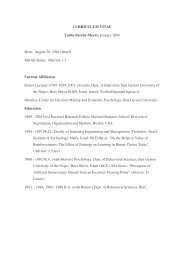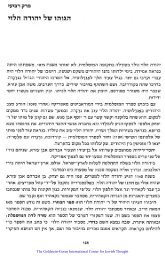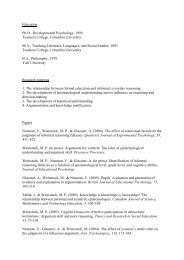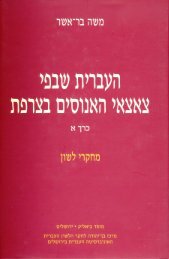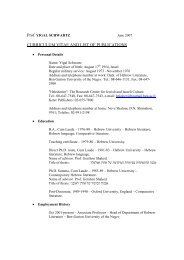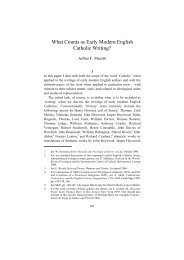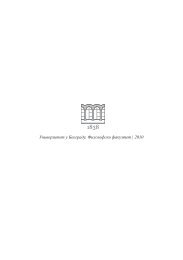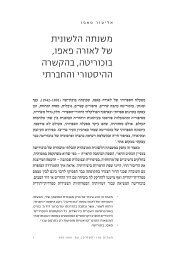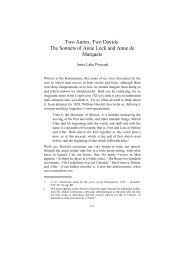Admiration and Disgust: The Ambivalent Re-Canonization of the ...
Admiration and Disgust: The Ambivalent Re-Canonization of the ...
Admiration and Disgust: The Ambivalent Re-Canonization of the ...
You also want an ePaper? Increase the reach of your titles
YUMPU automatically turns print PDFs into web optimized ePapers that Google loves.
Boaz Huss<br />
… a creation <strong>of</strong> several generations. Whatever may be <strong>the</strong> value<br />
<strong>of</strong> <strong>the</strong> doctrines that <strong>the</strong>y incorporate, <strong>the</strong>y will always be worthy<br />
<strong>of</strong> preservation as a monument to <strong>the</strong> patient struggle <strong>of</strong> a people<br />
for intellectual freedom during a period <strong>of</strong> religious tyranny.<br />
But that is not all. <strong>The</strong> system that <strong>the</strong>y present constitutes, by<br />
virtue <strong>of</strong> its source <strong>and</strong> its influence, an extremely important<br />
element in <strong>the</strong> history <strong>of</strong> human thought. 9<br />
Similar approaches to <strong>the</strong> Kabbalah <strong>and</strong> <strong>the</strong> Zohar appear among o<strong>the</strong>r<br />
scholars <strong>of</strong> <strong>the</strong> period. For example, Meyer Heinrich L<strong>and</strong>auer, who<br />
expressed great interest in <strong>the</strong> Kabbalah, <strong>and</strong> who in his Wesen und<br />
Form des Pentateuch (Stuttgart, 1838), even before <strong>the</strong> publication <strong>of</strong><br />
Francks' book, argued <strong>the</strong> antiquity <strong>of</strong> <strong>the</strong> Zohar. While L<strong>and</strong>auer later<br />
changed his mind <strong>and</strong> attributed <strong>the</strong> Zohar to R. Abraham Abulafia,<br />
this did not alter <strong>the</strong> great interest <strong>and</strong> esteem in which he held <strong>the</strong><br />
Zohar. 10 O<strong>the</strong>r scholars, including Solomon Munk 11 <strong>and</strong> Ignatz Stern, 12<br />
also adopted Franck's position that <strong>the</strong> Zohar, notwithst<strong>and</strong>ing its late<br />
editing, incorporates earlier strata as well. O<strong>the</strong>r scholars rejected<br />
Franck's claim regarding <strong>the</strong> antiquity <strong>of</strong> <strong>the</strong> Zohar, but in order to<br />
disprove his opinion devoted detailed historical studies to this work.<br />
9 'Ces deux livres, encore une fois, ne sont pas moins que l'oevre de plusiers<br />
generations. Quelle que soit la valeur des doctrines qu'ils enseignent, ils meriteront<br />
toujours d'être conserve comme un monument des longs et patients efforts de la<br />
liberté intellectuelle, au sein d'un people et dans un temps sur lesquels le despotisme<br />
religieux s'est exerce avec le plus d'energie. Mais tel n'est pas leur seul titer a<br />
nôtre interet: ainsi que nous l'avons déjà dit, et comme on ne tardera pas à en<br />
être convaincu, le système qu'ils renfermet est par lui-même, par son origine et<br />
par l'influence qu'il a exercée, un fait très important dans l'histoire de la pensée<br />
humaine'. A. Franck, La Kabbale, ou la Philosophie religieuse des Hebreux,<br />
Paris 1843, p. 140 (English: A. Franck, <strong>The</strong> Kabbalah, <strong>the</strong> <strong>Re</strong>ligious Philosophy<br />
<strong>of</strong> <strong>the</strong> Hebrews, New York 1995, p. 62). And cf. M. Idel, Kabbalah: New<br />
Perspectives, New Haven 1988, pp. 8-9.<br />
10 See Idel, Kabbalah: New Perspectives, p. 7, <strong>and</strong> in extenso, E. Goodman-Thau,<br />
'Meyer Heinrich Hirsch L<strong>and</strong>auer - Eine Brücke zwischen Kabbalah und<br />
aufgeklärtem Judentum', in Kabbalah und die Literature der Romantik (above,<br />
n. 4), pp. 249-275.<br />
11 See Salmon Munk, Mélange de philosophie juive et arabe. Paris 1859, p. 276;<br />
on Munk's approach to Kabbalah, see Idel, Kabbalah: New Perspectives, p. 9.<br />
12 Ignatz Stern, 'Versuch einer umständlichen Analyse des Sohar', Ben Chananja<br />
1-5 (1858-1862). For details, see G. Scholem, Bibliographia Kabbalistica, Leipzig<br />
1927, pp. 151-152; <strong>and</strong> cf. Tishby, <strong>The</strong> Wisdom <strong>of</strong> <strong>the</strong> Zohar, p. 49.<br />
208


